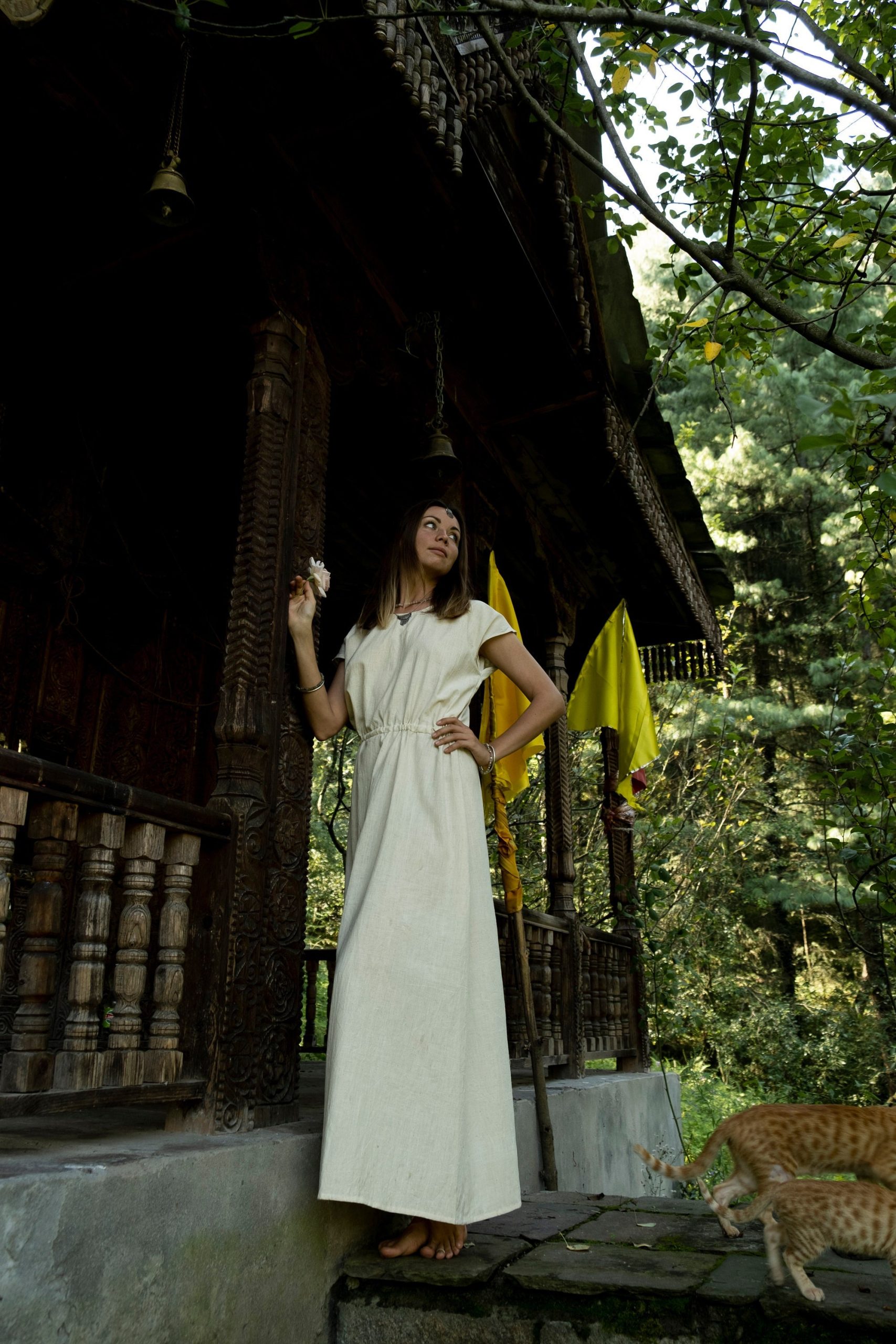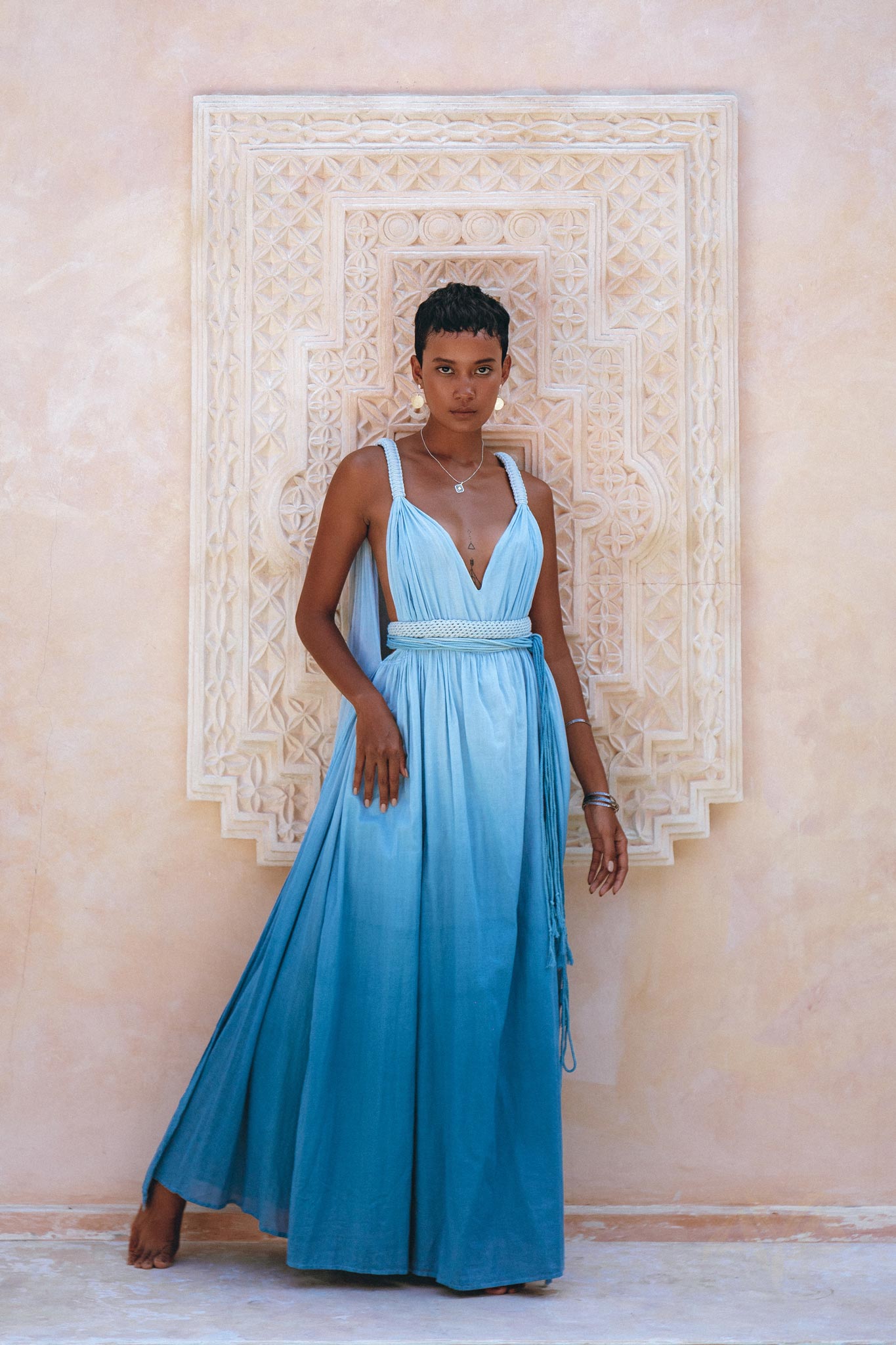Introduction
In the realm of fashion, a quiet revolution is underway, one that marries style with sustainability. At the forefront of this movement stands organic cotton dresses, a wardrobe staple embodying a harmonious blend of fashion and environmental consciousness. As consumers become increasingly aware of the impact their choices have on the planet, the demand for eco-friendly clothing, particularly dresses crafted from organic cotton, has surged.

What Makes Organic Cotton Special?
Organic cotton is cultivated without the use of harmful pesticides, synthetic fertilizers, or genetically modified organisms (GMOs). This farming method promotes biodiversity, conserves water, and reduces soil contamination, thereby benefiting both the environment and the health of farmers and communities involved in its production. The result is a fabric that is pure, hypoallergenic, and breathable—qualities that make it ideal for creating comfortable, skin-friendly dresses.
The Fashion Factor
Organic cotton dresses transcend mere eco-credentials; they are a fashion statement in their own right. Available in a myriad of styles, from bohemian maxis to minimalist shifts, they cater to diverse tastes and lifestyles. Designers are infusing creativity and innovation into these sustainable pieces, showcasing intricate embroidery, hand-dyed hues, and playful prints, proving that eco-fashion can indeed be chic and on-trend.
Why Choose Organic Cotton Dresses?
- Environmental Impact: Choosing organic cotton reduces the carbon footprint of your wardrobe. It supports practices that promote soil health, conserve water, and minimize pollution, making it a responsible choice for the planet.
- Health Benefits: Free from toxic chemicals, organic cotton is gentler on sensitive skin, reducing the risk of allergies and irritations. It’s a natural choice for those who prioritize wellness in their clothing.
- Durability and Quality: Organic cotton fibers are stronger and more resilient compared to conventionally grown cotton, ensuring your dresses last longer and maintain their shape and color better over time.
- Ethical Production: Organic cotton farming encourages fair trade practices, ensuring farmers receive better prices for their crops and work under safer conditions, fostering social sustainability.
Exploring Styles and Trends
- Boho Chic: Flowy, printed maxis and midi dresses made from organic cotton evoke a carefree spirit, perfect for summer days or as a statement piece for festivals.
- Elegant Minimalism: Clean lines and neutral tones define minimalist organic cotton dresses, offering a timeless sophistication suitable for work or formal events.
- Casual Comfort: Soft, breathable t-shirt dresses and shift styles are go-to options for everyday wear, combining effortless style with ultimate comfort.
- Ethnic-Inspired: Intricate embroidery and block printing on organic cotton dresses celebrate global artisanal traditions, adding a touch of cultural richness to your wardrobe.
Brands Making a Difference
Numerous fashion labels are championing organic cotton, committing to sustainable practices, and transparency in their supply chains. Brands like People Tree, Reformation, Eileen Fisher, and Patagonia lead the way, offering a wide range of organic cotton dresses that align with consumer values and environmental goals.
Closing Thoughts
As we navigate towards a more sustainable future, organic cotton dresses emerge as a symbol of conscious fashion. By embracing these garments, we contribute to a healthier planet, support ethical practices, and indulge in stylish yet responsible attire. Eco-chic is no longer a fleeting trend; it’s a lifestyle choice that marries aesthetics with ethics, proving that style and sustainability can coexist beautifully.
Innovations in Organic Cotton Dress Design
The organic cotton dress market continues to evolve, with designers and manufacturers pushing boundaries to create even more sustainable and innovative products. Here are some of the latest advancements and trends in the industry:
- Recycled and Blended Materials: To further reduce environmental impact, some brands are blending organic cotton with recycled polyester or other eco-friendly fibers. This not only diverts waste from landfills but also enhances the performance characteristics of the dresses, such as moisture-wicking properties or increased durability.
- Digital Printing Techniques: Traditional textile printing methods can be water-intensive and generate chemical waste. However, digital printing technologies used on organic cotton dresses allow for precise application of dyes, significantly reducing water usage and minimizing waste.
- Closed-Loop Production Systems: Forward-thinking brands are adopting closed-loop systems where water and dye are recycled within the manufacturing process. This drastically reduces water consumption and prevents toxic runoff, ensuring that the production of organic cotton dresses remains environmentally sound from start to finish.
- Traceability and Transparency: Consumers are increasingly interested in knowing the origin of their clothes. Brands are responding by offering detailed information about the supply chain, from farm to finished product. QR codes or unique tracking numbers on dresses allow customers to trace the garment’s journey, ensuring ethical and sustainable sourcing.
- Circular Economy Models: To combat fast fashion’s disposable culture, companies are exploring circular models for organic cotton dresses. This includes offering repair services, encouraging garment recycling programs, and designing dresses with end-of-life recyclability in mind.
Sustainable Fashion Beyond the Dress
Adopting an organic cotton dress is just the beginning of a broader journey towards sustainable living. It encourages consumers to consider the entire lifecycle of their clothing and the impact of their purchases. This mindset extends to:
- Mindful Washing and Care: Using cold water, eco-friendly detergents, and air-drying can significantly reduce the environmental footprint of maintaining your dresses.
- Investing in Timeless Pieces: Opting for classic designs and quality construction ensures your organic cotton dress stays relevant for years, reducing the need for frequent replacements.
- Supporting Local and Artisanal Producers: Choosing dresses made by local artisans or small-scale producers not only supports the community but also promotes unique, handcrafted fashion with a lower carbon footprint from transportation.
In Conclusion: A Sustainable Future in Fashion
The rise of organic cotton dresses signifies a significant shift in the fashion industry, where consumers and brands alike are prioritizing sustainability without compromising on style. By choosing dresses made from organic cotton, we’re not just making a fashion statement; we’re contributing to a cleaner environment, promoting fair labor practices, and supporting a more equitable and sustainable future. As this movement gains momentum, the hope is for a fashion industry that thrives while respecting the limits of our planet and valuing the wellbeing of everyone involved in its processes.




